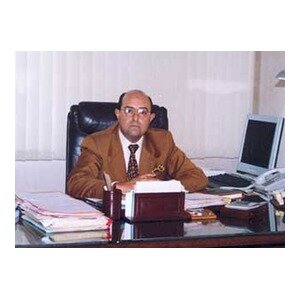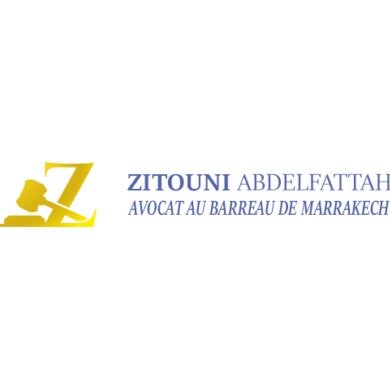Best Public-Private Partnerships (PPP) Lawyers in Marrakesh
Share your needs with us, get contacted by law firms.
Free. Takes 2 min.
List of the best lawyers in Marrakesh, Morocco
About Public-Private Partnerships (PPP) Law in Marrakesh, Morocco
Public-Private Partnerships, commonly referred to as PPPs, are collaborative agreements between public authorities and private sector entities designed to finance, build, and operate projects aimed at improving public infrastructure and services. In Marrakesh, Morocco, PPPs have become an increasingly popular model for delivering large-scale projects such as transportation systems, hospitals, energy facilities, and tourism infrastructure. This approach leverages the expertise and efficiency of the private sector while meeting the public service objectives set by the government. Regulation of PPPs is aimed at ensuring fair risk allocation, value for money, and the long-term sustainability of public assets and services.
Why You May Need a Lawyer
Navigating PPP arrangements often involves complex legal, financial, and technical considerations. Individuals and organizations may require legal assistance for a variety of reasons, including:
- Reviewing and negotiating PPP contracts to clarify roles, responsibilities, and risk sharing
- Guidance on bidding processes, including preparation and submission of tenders
- Advice on regulatory compliance and obtaining necessary permits or approvals
- Resolution of disputes between public and private entities, or with contractors and suppliers
- Advice on project financing, including public support mechanisms and guarantees
- Assistance with land acquisition, expropriation issues, and environmental compliance
- Review of performance standards, payment structures, and termination provisions
Given the complexity and long-term nature of PPP contracts, early legal guidance can help mitigate risks and ensure a project’s viability throughout its lifecycle.
Local Laws Overview
Morocco has established a specific legal framework for PPPs, most notably with Law No. 86-12 on Public-Private Partnerships adopted in 2014, which applies across the country including Marrakesh. Key elements of this law include:
- Defining eligible public bodies and the types of projects suitable for PPPs
- Requiring a transparent and competitive selection process for private partners
- Setting out standard provisions regarding project scope, risk sharing, financing, and contract duration
- Mandating due diligence and feasibility studies prior to project launch
- Specifying procedures for contract modification, dispute resolution, and termination
In Marrakesh, local authorities must comply with national PPP law as well as any regional or municipal requirements related to urban planning, environmental protection, and community engagement. Additional regulations may also apply to sector-specific projects, such as energy, water, or transport.
Frequently Asked Questions
What types of projects can be developed through PPPs in Marrakesh?
PPPs can be used for a wide range of infrastructure and public service projects, including roads, public transportation, hospitals, water and wastewater treatment, renewable energy, and tourism facilities.
Who can initiate a PPP project in Marrakesh?
Public entities such as ministries, regional authorities, and municipal councils can initiate PPP projects by identifying needs and launching procurement procedures in line with national law.
How are private partners selected for PPP contracts?
Private partners are typically selected through a transparent, competitive tendering process, though some direct negotiations are permitted under specific conditions defined by law.
What are the main stages of a PPP project?
A typical PPP project proceeds through feasibility assessment, procurement, negotiation and signing of the contract, financing, construction, operation, and eventual transfer or termination.
How are risks divided between the public and private sectors?
Risk allocation is a central aspect of PPP contracts. Risks should be assessed and contractually allocated to the party best able to manage them effectively, such as construction, financial, operational, or demand risks.
What is the duration of a typical PPP contract in Marrakesh?
PPP contracts often have long durations, typically ranging from 15 to 40 years, depending on the nature and complexity of the project.
Are foreign companies allowed to participate in PPPs in Marrakesh?
Yes, Moroccan PPP law permits foreign companies to participate, provided they meet the qualification requirements and comply with local laws and regulations.
What legal recourse exists in the event of a dispute?
PPP contracts usually specify dispute resolution mechanisms, which may include negotiation, mediation, arbitration, or litigation before Moroccan courts.
Are there special environmental or social obligations for PPPs?
Yes, PPP projects in Marrakesh must comply with national and local environmental standards, and often require environmental impact assessments and community engagement activities.
What happens when a PPP contract ends?
At the end of the agreed term, the private partner generally transfers the project assets back to the public authority, often in a specified condition, unless the contract provides for a different arrangement.
Additional Resources
If you seek further information or legal support regarding PPPs in Marrakesh, you may find the following organizations helpful:
- Moroccan Ministry of Economy and Finance - Department of Public Enterprises and Privatization
- Marrakesh Municipality - Legal and Urban Development Departments
- Moroccan Investment and Export Development Agency
- Moroccan Bar Association
- Regional Investment Center of Marrakesh-Safi
- Professional advisory firms with experience in infrastructure and PPP projects
Next Steps
If you are considering involvement in a PPP project in Marrakesh or require legal advice:
- Clearly define your objectives and gather relevant documentation regarding your project or area of interest
- Consult with a qualified lawyer specializing in PPP, infrastructure, or public procurement law in Morocco
- Prepare questions regarding risk allocation, compliance, and dispute resolution to discuss with your lawyer
- Seek early legal guidance to ensure your interests are protected throughout the PPP process
- Stay updated on new developments in the PPP legal framework in Morocco that may affect your project
Taking these steps can help you navigate the complexities of PPP arrangements and achieve successful project outcomes in Marrakesh.
Lawzana helps you find the best lawyers and law firms in Marrakesh through a curated and pre-screened list of qualified legal professionals. Our platform offers rankings and detailed profiles of attorneys and law firms, allowing you to compare based on practice areas, including Public-Private Partnerships (PPP), experience, and client feedback.
Each profile includes a description of the firm's areas of practice, client reviews, team members and partners, year of establishment, spoken languages, office locations, contact information, social media presence, and any published articles or resources. Most firms on our platform speak English and are experienced in both local and international legal matters.
Get a quote from top-rated law firms in Marrakesh, Morocco — quickly, securely, and without unnecessary hassle.
Disclaimer:
The information provided on this page is for general informational purposes only and does not constitute legal advice. While we strive to ensure the accuracy and relevance of the content, legal information may change over time, and interpretations of the law can vary. You should always consult with a qualified legal professional for advice specific to your situation.
We disclaim all liability for actions taken or not taken based on the content of this page. If you believe any information is incorrect or outdated, please contact us, and we will review and update it where appropriate.














